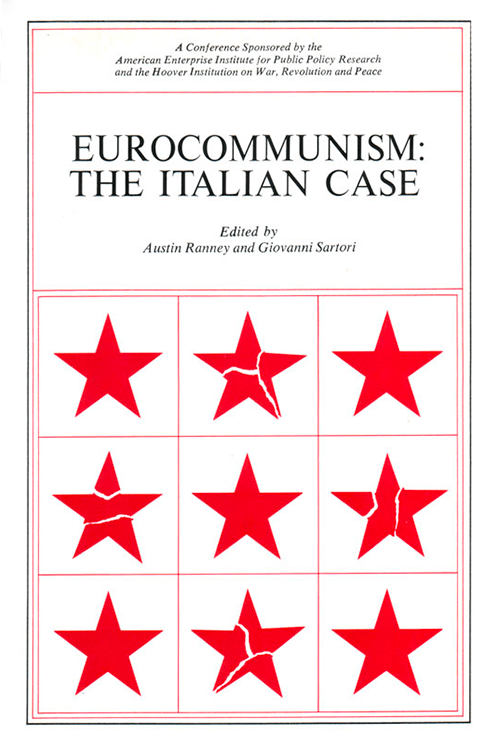SFOGLIA TUTTI I LIBRI
Eurocommunism: the Italian Case
Abstract
Eurocommunism: The Italian Case, edited by Austin Ranney and Giovanni Sartori, analyzes the present political situation in Italy as a case study of problems confronting not only Italy but other Western European nations and the United States as well. The book, based on a conference sponsored by the American Enterprise Institute and the Hoover Institution on War, Revolution and Peace, examines the questions: Does "Eurocommunism," as manifested in the current statements and activities of the French, Italian, and Spanish Communist parties, represent a genuine break with Soviet-style Marxism-Leninism, or is it a new stratagem to bring down Western democracy? What are the economic, social, and political causes of the increasing electoral strength of these parties? If they achieve governmental power, what will be the consequences for their nations' political institutions and foreign policies? What will happen to the Western Alliance? What can and should the United States do about their march to power? These and related issues are considered by American and Italian scholars, journalists, and public officials, whose ideological perspectives include American liberalism and conservatism and Italian Catholicism and Communism. Part One, on the opening to the left of the 1960s, with papers by Roger Hilsman, William E. Knight, and Angelo M. Codevilla Part Two, on the Italian Communist party, with papers by Giacomo Sani, Joseph LaPalombara, and Enzo Bettiza Part Three, on current Italian politics, by Marino de Medici, Massimo de Carolis, and Lucio Libertini Part Four, on the future and its implications for U.S. policy, by Giovanni Sartori and Henry A. Kissinger
Info
Anno: 1978
Autore: a cura di Giovanni Sartori con A. Ranney
Editore: AEI-Hoover Press
Città: Washington D.C.
Pagine: 196
Info
Anno: 1978
Autore: a cura di Giovanni Sartori con A. Ranney
Editore: AEI-Hoover Press
Città: Washington D.C.
Pagine: 196

